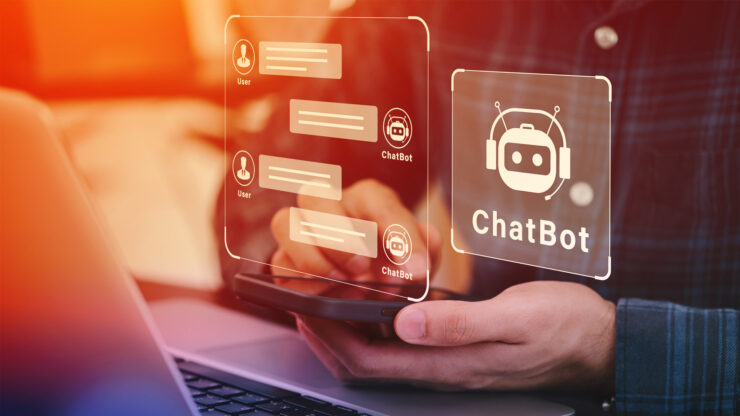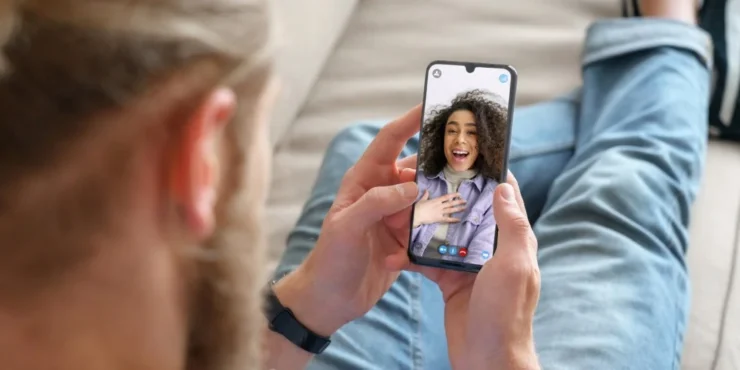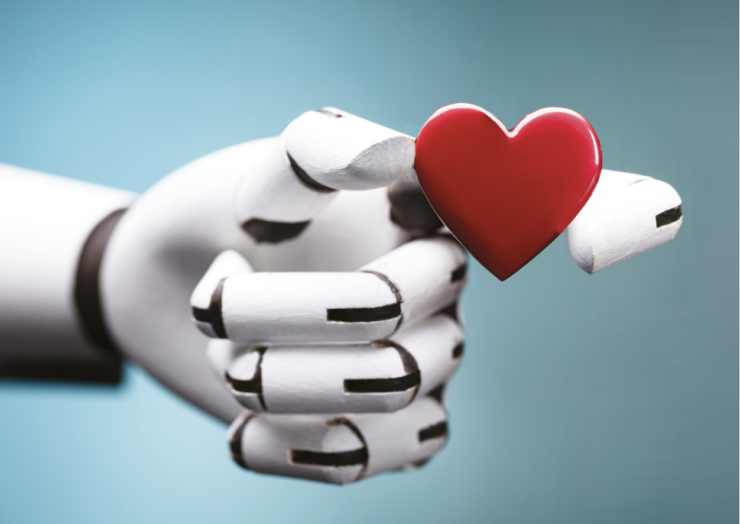Are algorithms better matchmakers than Cupid? Artificial intelligence has taken over more than just industries; it’s reshaping how we connect and form relationships. Dating apps and tools use AI to do everything from crafting matches to simulating entire conversations. But where does it lead us? Let’s unpack how technology has changed the game and what it means for the future of relationships.
Key Points
- AI creates personalized matchmaking experiences.
- Virtual reality removes physical boundaries in relationships.
- Ethical concerns about privacy and emotional impact are growing.
- Future technologies aim to predict emotional compatibility.
The Rise of AI in Romance

Dating apps have come a long way from simple swiping. Algorithms now analyze deeper aspects of personality, preferences, and behavior. AI identifies subtle patterns in how we interact, creating profiles more reflective of who we are.
Take Tinder or Bumble, for example. They’ve gone from recommending matches based on location to predicting your “type” by analyzing swiping habits. The goal? Faster, more meaningful connections.
Practical Examples of AI Matchmaking
- Personality Insights: AI evaluates your text tone and interests to suggest compatible matches.
- Behavioral Analysis: Swiping habits and time spent on profiles are analyzed to refine recommendations.
- Learning Preferences: The more you swipe, the better the AI understands your ideal match.
Enter the World of AI Girlfriends
For some, finding companionship has taken a surprising turn. Virtual AI-powered partners like Fantasy GF offer tailored emotional support and interaction with its AI girlfriend. For lonely users or those seeking unique connections, these tools feel revolutionary.
Benefits of AI Companionship
- Immediate responses tailored to your preferences.
- Freedom from judgment or emotional pressure.
- A safe space to explore conversations and emotions.
Yet, critics warn that relying on AI companions may blur the line between real relationships and artificial interactions.
Chatbots: Changing the Way We Talk

Modern dating isn’t just about meeting someone; it’s about maintaining engagement. Chatbots have become virtual assistants in relationships, helping users break the ice, respond strategically, and even sound more appealing.
Key Features of Chatbots in Dating
- Icebreaker Generators: Chatbots suggest opening lines tailored to the match’s bio.
- Mimicking Empathy: AI algorithms analyze conversational cues to craft empathetic responses.
- Efficiency: Busy users save time by automating small talk.
Pro Tip: Don’t over-rely on chatbots. They’re helpful for starting conversations, but authenticity keeps connections strong.
Virtual Reality and Simulated Romance
Virtual reality opens a new world for relationships. With VR, people can share experiences like traveling to Paris, hiking in the Alps, or simply enjoying a quiet dinner—without leaving their homes.
How VR Enhances Connection
- Immersive Experiences: Couples can interact in lifelike environments.
- Reduced Distance: Perfect for long-distance relationships.
- Creative Dates: Customizable settings make every meeting unique.
Example: Imagine a couple sharing a sunset on a virtual beach while discussing future plans. It’s a blend of convenience and emotional connection.
Pros and Cons of Virtual Dating

Pros
- Breaks geographic barriers.
- Encourages creativity in relationship-building.
- Creates safe environments for shy or introverted individuals.
Cons
- Risks over-dependence on simulated settings.
- Lack of genuine physical interaction.
- Can’t fully replicate real-life chemistry.
Recommendation: Use VR to enhance real-life connections, not replace them.
Redefining First Impressions
First impressions have always been a cornerstone of romantic connections. Traditionally, they were built on face-to-face interactions—how someone smiled, their tone of voice, or a subtle gesture. AI disrupts this dynamic by prioritizing digital footprints over physical presence.
Profiles become curated reflections of who we want to be, shaped by algorithms that amplify our most appealing traits. This shift raises the question: are we meeting someone authentic or their algorithmically enhanced persona?
The impact goes beyond just profiles. AI tools analyze photos for attractiveness, text for emotional tone, and even suggest conversation topics. While this removes some of the pressure, it also risks diluting genuine chemistry.
A perfectly tailored match on paper doesn’t always translate to real-world compatibility. Still, many users appreciate how these tools help eliminate initial awkwardness, smoothing the way for deeper conversations.
AI’s Role in Long-Term Connections

The influence of AI isn’t limited to initial meetings; it’s also reshaping long-term relationships. Many platforms now use AI to track ongoing interactions, offering insights into communication patterns and suggesting ways to strengthen bonds. This turns technology into a relationship counselor, guiding couples toward healthier dynamics.
For example, some apps analyze text exchanges and highlight emotional mismatches, encouraging users to resolve issues before they escalate. Others suggest shared activities based on mutual interests or even recommend date ideas tailored to relationship milestones. While this proactive approach has its merits, it also raises concerns about privacy. How much influence should technology have over deeply personal decisions?
Ethical Concerns and Emotional Risks
AI-powered platforms collect vast amounts of personal data to improve matchmaking. This raises concerns about privacy. What happens if this sensitive information is hacked or misused?
Top Concerns
- Data Security: Platforms store chat histories, preferences, and personal details.
- Emotional Dependence: Users may prioritize artificial relationships over real ones.
- Algorithmic Bias: AI systems may unintentionally reinforce stereotypes.
Example: A chatbot that emphasizes traditional gender roles could alienate users seeking more progressive connections.
Pro Tip: Read privacy policies carefully and limit sharing intimate details online.
The Future of Romance and Technology

As technology evolves, dating platforms aim to go beyond simple compatibility. Developers envision AI systems capable of predicting emotional needs and fostering deeper bonds.
Future Innovations to Watch
- Predictive Matchmaking: Platforms may analyze your moods and habits to match you with emotionally compatible partners.
- Wearable Tech Integration: Smart devices might collect data on heart rate or stress levels to gauge compatibility.
- Enhanced VR Environments: Future VR could simulate scents, touch, and even emotional feedback.
Practical Tip: Stay curious but cautious. Not all innovations benefit emotional well-being.
Closing Thoughts
Artificial intelligence transforms how people approach relationships. While it introduces convenience and innovation, it also raises new challenges. The key lies in balancing human emotions with technological tools.
Are we losing something human in the pursuit of digital connection? Or are we just finding new ways to love?

